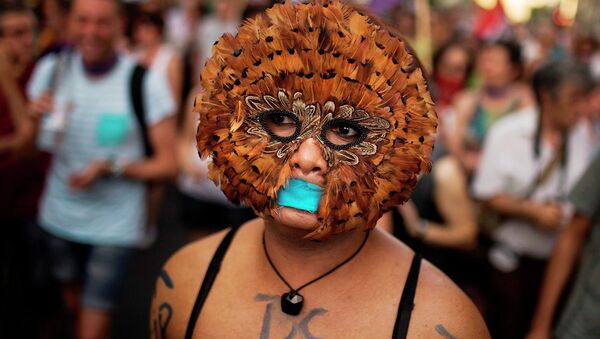The law limits venues for public assembly, allows for harsh punishment of those deemed to be resisting arrest and prohibits photography or video recording of police officers or their activities under officer endangerment or operation success.
"We hope that in the early months of next year, this law can be repealed," speaker in the Commission of Home Affairs Ricardo Sixto said.
Last week, a woman in Spain was ordered to pay 800 euros ($885 at the current exchange rate) for posting on Facebook a photo of a police car parked in a disabled parking space. She was tracked within 48 hours because "the unauthorized use of images of police officers that might jeopardize their or their family's safety or that of protected facilities or police operations" is a prohibited act under Spain's new legislation.
"The photograph published on Facebook does not in itself endanger any member of the police or their families. It's just a testament to bad police practice," Sixto told Sputnik, stressing that the fine imposed on the woman was "unjustified."
Sixto also stressed that all Spain's political parties, except the ruling People's Party, have expressed their commitment to repeal this law.
Critics have repeatedly noted that the law is too vague and too open to interpretation, as it is hard to define whether an action is legal.
"This law gives a wide scope for authorities to impose fines and penalties with little justification. It only leaves people who have been denounced judicial remedy as a sanction. Actual possibilities to oppose and defend citizens are limited," Sixto said.
The Public Security Law came into force on July 1. The lower house of the Spanish parliament approved the bill mid-December 2014, triggering large protests across Spain.


